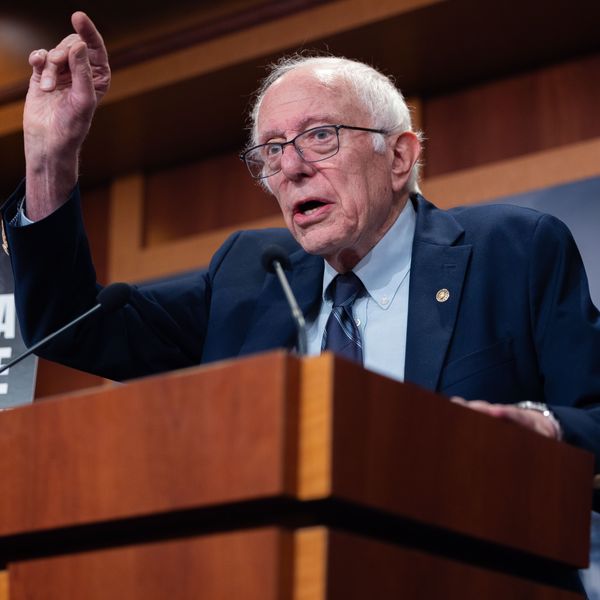Twenty years ago, he helped push through a single payer system for Taiwan.
And now, he wants to do something similar in Vermont.
Over the past couple of months, Hsiao has been working feverishly
- with a team of 20 researchers - to finish a report to the Vermont
legislature on how to best implement a single payer system for the
state.
Yesterday, he delivered his 132-page report.
And at the beginning of his one hour presentation to the legislature in Montpelier, he made it clear that "what I'm going to present is not necessarily popular for everyone."
"Recently I was talking to an insurance executive," Hsiao said.
"And I asked him if he was in favor of spending $50 billion to manufacture a new shuttle to the moon."
"And he says - yes, if you will go."
That got a chuckle out of the gathered legislators.
But clearly, the insurance industry is not at all pleased with Hsiao.
They are watching events in Vermont carefully.
The newly elected Governor - Peter Shumlin - ran on a single payer platform.
Shumlin said that in his first conversation with Hsiao last year, Hsiao told him that he had "given up on America."
"I told him we are Vermonters," Shumlin said. "We think
independently. We take care of each other, and we do things that others
dare not do."
The Vermont legislature tasked Hsiao with putting forth and analyzing three proposals.
A pure single payer government run system.
The current system with a public option.
And Hsiao's preferred system - a single payer system run by an independent board.
While Hsiao is not explicit about this in his report, the bottom line
is clear - under Hsiao's single payer proposals, the private health
insurers in Vermont would be out of the business of marketing and
selling basic health insurance.
That's why the insurance industry would prefer to see Hsiao headed to
the moon than on the ground speaking before the Vermont state
legislature.
"Our analysis of the three health insurance companies with
significant operations in Vermont - Blue Cross Blue Shield of Vermont,
MVP, and Cigna - was much more limited than our analysis of other
groups, partly because much of Act 128 has fairly clear implications for
those companies," Hsiao writes in his report.
"It is reasonably safe to assume that health insurance companies
would oppose any major health system reform that reduces their autonomy
in financing and paying for health care, increases government's role,
and/or introduces new competitors to their market."
"However, given Vermont's history with reforms such as
guaranteed-issue, community-rating, and the Blueprint program, it must
be noted that the remaining health insurers in Vermont - especially
those run as non-profits - are likely more accustomed and potentially
more open than insurers elsewhere to working with state-led regulations.
In addition, a continued market for supplementary insurance would
generate ongoing opportunities for private insurance in the state."
"It is possible that one or more companies may be interested in
partnering with the state and substantially reforming their business
model in order to continue to operate in Vermont."
And in fact, Vermont's largest insurer - Blue Cross Blue Shield -
with 75 percent of the state's health insurance business - signaled
yesterday that it might be interested in taking Hsiao at his word.
"If there's a single payer system, we'd like to be the single payer,"
Leigh Tofferi, the Blue Cross-Blue Shield lobbyist in Vermont told vtdigger.org.
But Hsiao warned of another possible insurance industry reaction.
"Of course, the opposite is also possible - that an industry with
deep pockets nationally will oppose reforms due to the threats they pose
to the Vermont market and other markets that could follow Vermont's
lead," Hsiao wrote.
There's not a mention of the report in today's big three newspapers - the New York Times, the Wall Street Journal or the Washington Post.
Early indications are that supporters of a pure government run single
payer system are willing to accept Hsiao's public/private compromise.
Physicians for a National Health Program's (PNHP) Deb Richter told
vtdigger.org that while a government administered system "makes the most
sense in terms of good policy," the system doesn't have to be
controlled by the government to be effective.
And PNHP's Don McCanne said that "although advocates of the pure
single payer model will find some problems with this report on a reform
proposal for Vermont, there is very good news in this analysis. The
report emphatically confirms the superiority of the single payer model
in ensuring that everyone is included while containing health care
costs."
"One very serious deficiency is that they decided to leave in place
Medicare and Medicaid, primarily because of existing barriers to move
them into a single payer system," McCanne wrote. "Thus their proposal is
not a single payer system. Leaving these programs in place sacrifices
some of the important single payer efficiencies."
"Within the next couple of days, we'll have a clearer concept of
where the single payer community should be on this report. Tentatively,
it seems that it deserves our support, but support that is qualified by
strong advocacy to make it right by such measures as including
comprehensive benefits, and rolling in and eliminating Medicare and
Medicaid," McCanne said.
Governor Shumlin's office is reportedly drafting legislation that will be introduced soon.
Clearly, Shumlin hasn't given up on America.
Or at least on Vermont.

